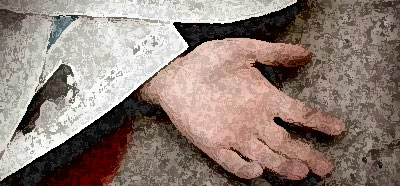
Iranian Society for Human Rights
Peace, Justice and Dignity for All
[Persian Text]
529 North 6th Street, San Jose, CA 95112
Phone: 408.275.9836
e-mail: koshesh@aol.com
www.HumanRightsforIran.org
In the past four decades, dissident Iranians, both inside and outside the country, have exposed violations of human rights in Iran, calling for international attention to the Iranian states’ abuses of power. In recent years, such activities have been expanded and defense of human rights has gained unprecedented urgency among dissident Iranians. While this development is encouraging, the number of Iranians engaged in such activities in a sustained manner remains small and those who are involved rarely go beyond condemning the state authorities for committing illegal and cruel acts. There is an impressive body of scholarly studies about the human rights situation in Iran, but few Diaspora Iranians are familiar with these works or have done much to support or praise their authors. Similarly, the bulk of the documented reports about human rights violations in Iran have been produced by international human rights organizations with little material assistance from Iranians.
Iranian Society for Human Rights in Northern California plans to organize a seminar in order to generate an inclusive and non-partisan discussion among interested Iranians on the problems and challenges facing human rights activists in Iran.
The idea of a non-partisan struggle for human rights or democracy is very new to our political culture. While recognizing that non-partisanship is not opposed to or a substitute for partisanship, the proposed seminar will explain the central role of non-partisan agents and agencies in promoting a culture commensurate with the idea of human rights. It is true of course that there can be no struggle for human rights or democracy in a country without partisan politics or competing social agendas. It is equally important, at the same time, that non-partisan defense of human rights should transcend all partisanship. Leaders of political groupings or parties can also be non-partisan defenders and promoters of human rights and democracy. An open society needs human and civil rights associations whose goals, strategies and tactics are strictly nonpartisan.
The proposed seminar intends to go beyond routine condemnations of the Iranian state and devote some attention to human rights deficits in the context of Iran’s history, culture and society. To be sure, when defending victims of human rights abuses in the political realm, or critiquing prejudicial state policies, our activities must be directed at the institutions of the regime and public officials. But when it comes to promoting a culture of human rights or debunking the traditional taboos and discriminatory practices rooted in the culture, we need to observe and advocate a self-critical approach as well. We need to recognize that cultures embody values of identity and solidarity, as well as practices that perpetuate privilege and exclusion.
We need to take our discourse of human rights beyond concerns about state behavior and begin to view the challenges facing us from cultural and historical perspectives. Failure to appreciate the diversity and pluralism of Iranian society is not limited to holders of political power; it even permeates the discourse and behavior of many dissident elements of our people, and we need to counter this reality in a systematic fashion. It is of course heartening that conversations on human rights have become routine among educated Iranians, even though clerical despotism has made it extremely difficult for them to transform their vision into a sustained project. Diaspora Iranians now have the opportunity to do so and the Internet has made it possible for them to do it in constant contact with like-minded Iranians inside the country.
Iranian Society for Human Rights in Northern California will soon begin a fund raising drive and preparation for the seminar. The seminar will be a three-day event and it will take place in Northern California during the summer of 2008. The exact location and schedule of the seminar will be announced in the coming weeks. The general topics to be considered for the seminar’s discussions are the followings:
1- The concept of non-partisan human rights activism
2- Socio-cultural impediments to the cultivation of respect for human rights
3- Women’s struggle for human rights
4- Torture and capital punishment in Iran’s judicial system
5- Secular laws, religious values and human rights
6- Child labor, juvenile execution and human rights
7- Popular attitudes concerning torture or death penalty for convicted criminals
8- Rights of citizens and religious, ethnic and sexual minorities
9- Work, poverty and human rights
10- Institutionalization of human rights activism
11- Human rights issues, national foreign policy and international organizations
12- Environmental politics and human rights
13- Respect for human rights among opposition groups
14- Human rights in Persian literature
These topics reflect the general issues and challenges facing Iran’s human rights movement and each one of them can be the basis of some specific questions that concern the activists, scholars or analysts. We invite all individuals interested in participating in this seminar to e-mail us a brief abstract of an issue or question that they wish to address in a 10-15 page essay or research paper. We particularly appeal to those working in social sciences, literature, arts and humanities, as well as activists and journalists to consider our invitation (presenting a paper or participating in panel discussions) and send us their suggestions for elevating the quality of the seminar and making it a learning and inspiring experience for all. In anticipation of such a gathering, we hope to receive encouraging responses from interested Iranians so that we can begin to organize the presentations and panel discussions and establish contact with potential participants. Please e-mail us at: koshesh@aol.com






